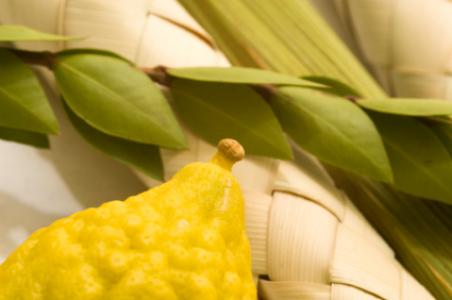
Do You Get a Black Moon?
What is a Black Moon, and why does it happen in December?
Many Jewish Australians observe the first day of Sukkot (Succot, Succoth, Sukkoth), which is the start of the Sukkot period. This period, also known as the Feast of Tabernacles, lasts for about seven days. It is observed during the week starting on 15th day of Tishri (or Tishrei), which is the first month of the year in the Jewish calendar.
First day of Sukkot is not a public holiday. Businesses have normal opening hours.

A lemon-like fruit found on a citron tree is one of the Sukkot symbols.
©iStockphoto.com/sterling_photo
Many Jewish Australians build a temporary booth known as the sukkah before the start of the Sukkot period, which lasts for about seven days. The sukkah is a temporary dwelling that reminds people about God’s protection over those who wandered in the wilderness for 40 years, a story described in the Torah. Some Australian Jewish businesses sell products such as portable sukkahs, decoration packs for sukkahs, and modular sukkahs.
The first day of Sukkot is kept like the Sabbath so some Jewish Australians may observe work restrictions. The rest of the days during the Sukkot period are days when work is permitted. Many Jewish people in Australia also make symbolic use of four kinds of plants known as the “four species”, which are said to represent Israel, the final harvest and the land’s fertility. Some Jewish student societies at universities hold activities that feature music, free fruit, and a sukkah to commemorate Sukkot.
The first day of Sukkot is a not a nationwide public holiday in Australia. However, many Jewish businesses, schools and organizations may be closed or offer a reduced level of service.
The Sukkot period is a time to remember the Jewish people’s wandering in the desert for 40 years following their exodus from Egypt, according to Jewish teachings. It is also a time to celebrate the grape harvest. Some sources claim that Sukkot lasts for about seven days while others state that it is an eight-day festival. The seventh day of Sukkot is known as Hoshana Rabbah while the eighth day is known as Shmini Atzeret and the day after is called Simchat Torah.
An important Sukkot symbol is the sukkah. This is a temporary structure with a roof made of sechach or s'chach, which is raw, unfinished plant material, such as palm branches, bamboo poles, reeds or even corn stalks.
The “four species” are also important symbols of Sukkot and represent the blessings of nature. These are lulav (a green, closed frond of a date palm tree), hadass (twigs and leaves from a myrtle tree), aravah (twigs and leaves from a willow tree) and etrog (a lemon-like fruit of the citron tree).
In the Jewish diaspora—Jewish communities outside of Israel—an extra day is usually added to religious observances, with the exception of Yom Kippur, which lasts only one day worldwide, and Rosh Hashana, which is celebrated over two days in both Israel and the diaspora.
This custom has its roots in ancient times when the beginning of the months in the Jewish calendar still relied on the sighting of the crescent Moon following a New Moon.
The beginning of a new month was determined by the Sanhedrin, the supreme court of ancient Israel in Jerusalem. Once the date was published, messengers were dispatched to spread the news among Jews living abroad. Since this process took some time, it was decreed that Jews outside of ancient Israel were to observe every holiday for 2 days to make sure that the rules and customs applicable to each holiday were observed on the proper date. This rule is still observed today.
Note: Jewish holidays begin at sundown the day before the date specified for the holiday.
| Year | Weekday | Date | Name | Holiday Type |
|---|---|---|---|---|
| 2019 | Mon | Oct 14 | First day of Sukkot | Jewish holiday |
| 2020 | Sat | Oct 3 | First day of Sukkot | Jewish holiday |
| 2021 | Tue | Sep 21 | First day of Sukkot | Jewish holiday |
| 2022 | Mon | Oct 10 | First day of Sukkot | Jewish holiday |
| 2023 | Sat | Sep 30 | First day of Sukkot | Jewish holiday |
| 2024 | Thu | Oct 17 | First day of Sukkot | Jewish holiday |
| 2025 | Tue | Oct 7 | First day of Sukkot | Jewish holiday |
| 2026 | Sat | Sep 26 | First day of Sukkot | Jewish holiday |
| 2027 | Sat | Oct 16 | First day of Sukkot | Jewish holiday |
| 2028 | Thu | Oct 5 | First day of Sukkot | Jewish holiday |
| 2029 | Mon | Sep 24 | First day of Sukkot | Jewish holiday |
While we diligently research and update our holiday dates, some of the information in the table above may be preliminary. If you find an error, please let us know.

What is a Black Moon, and why does it happen in December?

When will the next comet be visible?

Why do mornings keep getting darker after the December solstice?

Many Jewish communities in Australia observe the last day of Sukkot, which marks the end of the Sukkot festival.